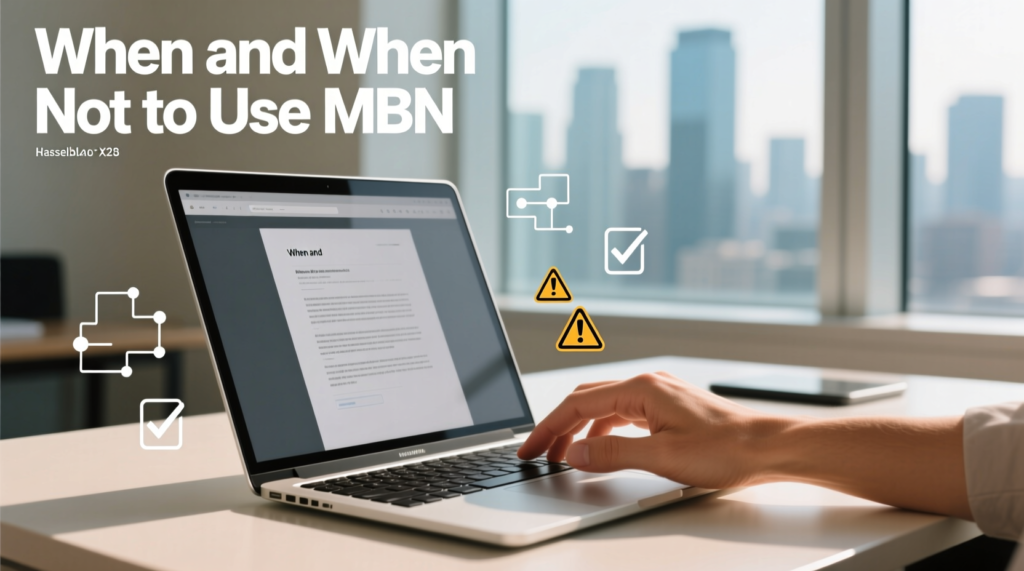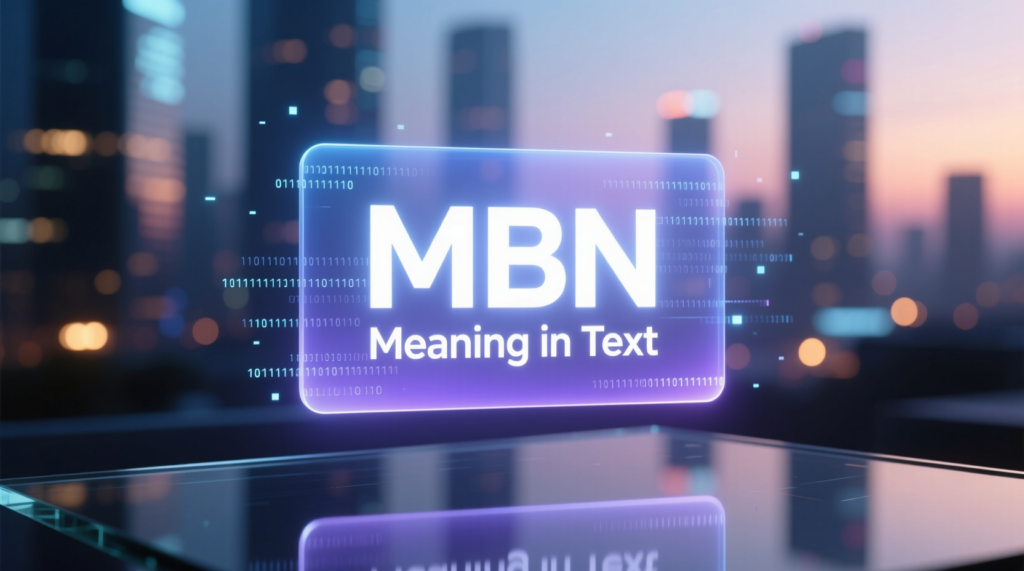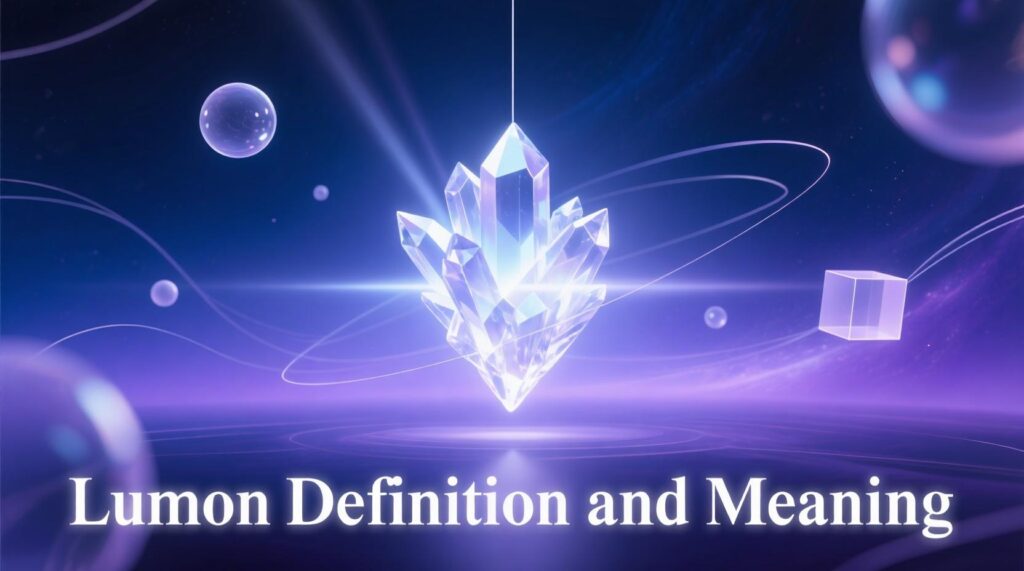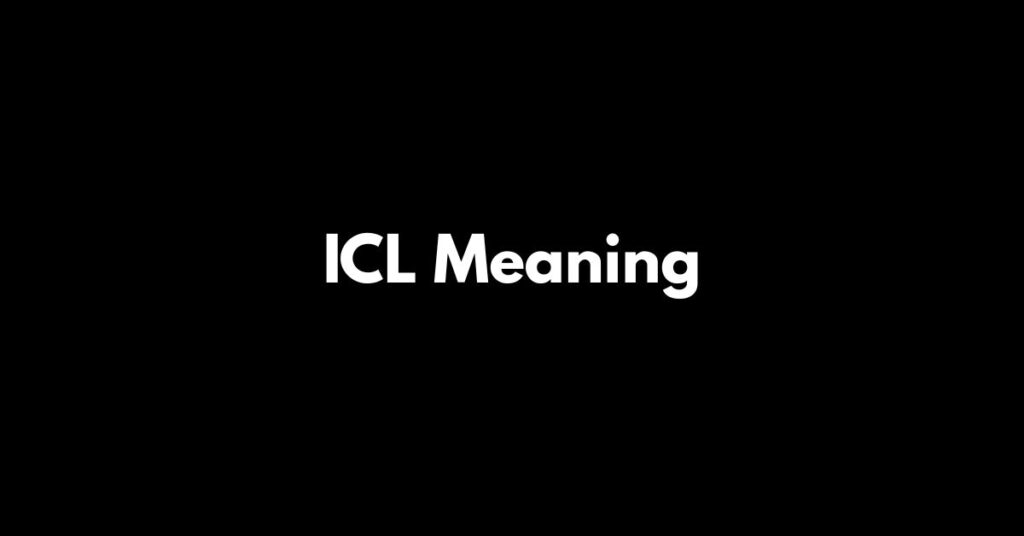In today’s world of digital communication, new acronyms pop up almost daily. Whether it’s on text messages, online chats, or social media posts, short forms make conversations quicker, fun, and often more expressive. One of the trendy expressions dominating messaging apps and TikTok captions in 2025 is MBN.
But what does MBN mean in text? How can you use it without sounding rude or sarcastic? And what are some polite alternatives if you’re chatting in a professional setting?
This guide will give you a clear understanding of MBN meaning in text, its origins, tone, examples, and risks—so you can use it naturally and confidently.
What Does MBN Mean in Text?
At its core, MBN stands for “Must Be Nice.”
It’s a casual phrase that can show admiration, lighthearted envy, or even sarcasm—depending on the tone and context. In a way, it’s like a mirror. The meaning reflects your attitude and relationship with the person you’re texting.
For example:
- Admiration: “You’re going to Paris for two weeks? Wow, MBN!”
- Envy: “Got front-row tickets again? MBN.”
- Sarcasm: “Another raise already? MBN…”
👉 In short, MBN meaning in text is flexible. It’s shorthand for saying, “That sounds great for you, wish I had the same.”
The Origin and Evolution of MBN
Like many abbreviated expressions, MBN grew out of online forums and early texting slang in the late 2000s. The phrase “Must Be Nice” was already common in spoken English, often used in a sarcastic tone. As texting culture demanded brevity in texting, it shrank into MBN.
Key moments in its spread:
- Early online chats: Users in chatrooms and gaming forums adopted it for quick replies.
- Social media boom: Platforms like Twitter and Instagram made acronyms like MBN mainstream.
- Memes and TikTok: Viral videos paired “MBN” with luxury lifestyles, dream vacations, or funny skits, cementing its popularity among Gen Z.
By 2025, MBN meaning in texting isn’t just slang—it’s a generational slang staple that crosses from casual conversations into memes and hashtags.
Context and Nuances of MBN
The tricky part about MBN isn’t spelling—it’s tone and context. Depending on how and where it’s used, MBN can come across in very different ways.
Here are the main emotional nuances:
| Tone/Context | Meaning Example | Risk Factor |
|---|---|---|
| Admiration | “You won the scholarship? MBN!” | Positive and supportive |
| Envy | “She gets a new car every year. MBN.” | Could sound bitter |
| Sarcasm | “Skipped work again, MBN…” | Might offend |
| Playful teasing | “Pizza delivery in 10 minutes? MBN 😂” | Fun and lighthearted |
| Neutral remark | “Vacation next week? MBN.” | Depends on relationship |
👉 Because MBN is tone-driven, it’s easy to slip from friendly banter into misinterpretation.
Why Is MBN So Popular in Texting?
Three main reasons explain why MBN meaning in text has exploded:
- Brevity in texting – Just three letters pack in admiration, envy, or sarcasm.
- Relatability – It’s a trendy expression that fits perfectly in casual chats.
- Memes and virality – Screenshots of sarcastic “MBN” replies are meme gold.
Compared with other internet slang like SMH (shaking my head) or FOMO (fear of missing out), MBN has a special appeal: it’s short, versatile, and often humorous.
When and When Not to Use MBN

Knowing what does MBN mean in texting is only half the story. The real skill is knowing when to use it—and when not to.
✅ Good times to use MBN:
- With friends in informal communication.
- In a playful, joking mood.
- On social media posts as captions or comments.
❌ When to avoid MBN:
- Professional communication (emails, workplace chats).
- When the other person may not understand modern texting slang.
- Sensitive situations where it could sound dismissive.
Rule of thumb: If you’d hesitate to say “Must Be Nice” out loud in that context, don’t type MBN.
Polite and Professional Alternatives to MBN
Sometimes you want the warmth of MBN without risking sarcasm. In professional communication or with acquaintances, choose polite alternatives.
Examples include:
- “That’s wonderful.”
- “I’m happy for you.”
- “Congratulations on your achievement.”
- “That’s great news.”
Using these maintains professional etiquette and avoids the unprofessional tone MBN might carry.
Casual and Friendly Alternatives to MBN
With friends, you can swap MBN for other friendly alternatives that keep conversations light.
Some great substitutes:
- “Lucky you!”
- “Jealous!”
- “Living the dream.”
- “That’s awesome!”
- “Good for you!”
These options convey lighthearted admiration or playful language without the edge of sarcasm.
Examples of MBN in Real Conversations (With Alternatives)
Let’s break down how MBN works in real-world scenarios:
- Vacation envy
- Friend: “Booked my trip to Paris for two weeks!”
- You: “MBN 😏”
- Alternative: “Lucky you, I’ve always wanted to go there!”
- Work promotion
- Friend: “I just got promoted to manager!”
- You: “MBN!”
- Alternative: “Congrats, you deserve it!”
- Food delivery
- Friend: “Got a large pizza with extra cheese.”
- You: “MBN 🍕”
- Alternative: “That sounds amazing, now I’m hungry!”
- Gaming gear
- Friend: “Picked up the new PS5 bundle.”
- You: “MBN!”
- Alternative: “Wow, that’s awesome!”
- Dream car
- Friend: “Finally bought my dream Mustang.”
- You: “MBN 🚗”
- Alternative: “That’s fantastic, congrats!”
Potential Misunderstandings and Pitfalls
While MBN is widely understood, it’s also easy to misread.
Risks of using MBN:
- Sarcasm misfire: A friend might think you’re mocking instead of admiring.
- Generational gap: Older relatives may not know what MBN means in text.
- Workplace blunder: Dropping “MBN” in a professional chat can seem unprofessional.
- Overuse: Too much MBN feels lazy and repetitive.
Tip: Use MBN meaning in text sparingly, and balance it with genuine compliments.
Related Acronyms and Phrases
MBN fits into a family of modern texting language expressions:
| Acronym | Expansion | Usage |
|---|---|---|
| FOMO | Fear of Missing Out | Expressing envy or desire to join in. |
| SMH | Shaking My Head | Disappointment, disbelief. |
| IDC | I Don’t Care | Dismissive, casual tone. |
| IMO/IMHO | In My Opinion / In My Humble Opinion | Sharing personal views. |
Comparing them:
- FOMO shows longing, while MBN reacts to someone else’s fortune.
- SMH conveys criticism, whereas MBN leans toward admiration or envy.
Frequently Asked Questions
What does MBN mean in text messages?
MBN means “Must Be Nice”—a shorthand expression of admiration, envy, or sarcasm.
Is MBN considered polite to use?
Not always. It can be polite among friends, but in formal or professional contexts it may sound dismissive.
Can MBN be used professionally?
No. In professional communication, choose alternatives like “That’s wonderful” or “Congratulations.”
What are some good alternatives to MBN?
Polite: That’s wonderful, I’m happy for you.
Casual: Lucky you, Living the dream.
How do I know when to use MBN in conversation?
If the context is casual and the recipient understands internet slang, MBN works. Otherwise, stick to clearer phrases.
Final Thoughts
So, what does MBN mean in text? Simply put, it’s the acronym for Must Be Nice—a trendy expression that captures envy, admiration, or sarcasm in just three letters.
Whether you’re scrolling through social media posts, chatting in online chats, or reacting to a friend’s good fortune in text messages, MBN delivers your reaction with brevity in texting.
Still, remember: tone matters. Without the right communication style, this casual phrase can slip into misinterpretation.
✅ Use it with friends for playful teasing or lighthearted admiration.
❌ Skip it in professional communication where clarity and respect come first.
Like all modern texting language, MBN works best as a tool—not a crutch. Use it wisely, mix in alternatives, and let your words reflect genuine connection.

James Henry – Writer at Lotus Magazine, providing expert mobile network guides with clarity and precision.



